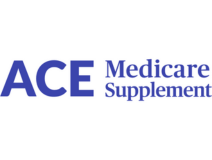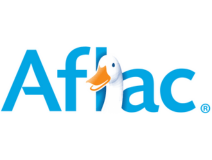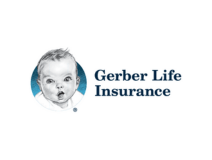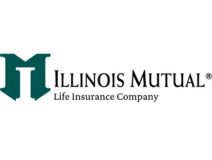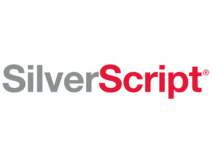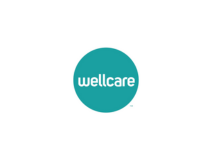Medicare Part A

2024 Medicare Part A Changes
Starting January 1, 2024:
- Medicare Part A inpatient deductible for hospital admittance has increased from $1,600 (in 2023) to $1,632 (in 2024) for each benefit period.
- The Medicare Part A premium for people with 30+ (but less than 40) quarters of work history has stayed level at $278/month (in 2024).
- The Medicare Part A premium for people with fewer than 30 quarters of work history has stayed level at $506/month (in 2024).
PART A: HOSPITALIZATION INPATIENT DEDUCTIBLE AND COINSURANCE
- Part A has a deductible that applies to each benefit period (rather than a calendar-year deductible like. Part B or private insurance plans) and is increasing from $1,600 (in 2023) to $1,632 (in 2024)*. *This increase applies to all enrollees, although many enrollees have Medicare Supplement (Medigap) Insurance coverage that pays all or part of the Part A deductible.
- Days 1-60: $0 coinsurance for each benefit period.
- Days 61-90: $408 coinsurance per day of each benefit period (up from $400 per day in 2023).
- Days 91-150: The coinsurance per each “lifetime reserve day” after day 90 for each benefit period is $816 coinsurance per day in 2024 (up from $800 per day in 2023). (up to 60 days over your lifetime)
- After day 150: You pay all costs.
PART A: SKILLED NURSING FACILITIES
- Medicare only covers skilled nursing facility care if the patient had an inpatient hospital stay of at least three days before being transferred to a skilled nursing facility. There is a coinsurance payment that applies to days 21 through 100 in a skilled nursing facility, and for days 101 and beyond, all costs must be paid by the recipient.
- Days 1-20: $0 for each benefit period
- Days 21-100: $204 coinsurance per day of each benefit period (up from $200 a day in 2023).
- Days 101 and beyond: You pay all costs.
Medicare Part A (Hospital Insurance) Helps cover the following:
- Inpatient care in a hospital
- Skilled nursing facility care
- Hospice care
- Home health care
Inpatient care in a hospital :
Medicare covers semi-private rooms, meals, general nursing, drugs (including methadone to treat an opioid use disorder), and other hospital services and supplies as part of your inpatient treatment. This includes care you get in acute care hospitals, critical access hospitals, inpatient rehabilitation facilities, long-term care hospitals, psychiatric care in inpatient psychiatric facilities, and inpatient care for a qualifying clinical research study. This doesn’t include private-duty nursing, a television or phone in your room (if there’s a separate charge for these items), personal care items (razors or slipper socks), or a private room, unless medically necessary.
If you also have Part B, it generally covers 80% of the Medicare-approved amount for doctors’ services you get while you’re in a hospital.
In each benefit period, you pay: See above “Part A HOSPITALIZATION INPATIENT DEDUCTIBLE AND COINSURANCE”
After you use all of your lifetime reserve days, you pay all costs.
Part A only pays for up to 190 days of inpatient psychiatric hospital care provided in a freestanding psychiatric hospital during your lifetime.
Am I an inpatient or outpatient?
Whether you’re an inpatient or an outpatient affects how much you pay for hospital services and if you qualify for Part A skilled nursing facility care.
- You’re an inpatient when the hospital formally admits you with a doctor’s order.
- You’re an outpatient if you’re getting emergency or observation services (which may include an overnight stay in the hospital or services in an outpatient clinic), lab tests, or X-rays, without a formal inpatient admission (even if you spend the night in the hospital).
Each day you have to stay, you or your caregiver should always ask the hospital and/or your doctor, or a hospital social worker or patient advocate, if you’re an inpatient or outpatient.
Note: Sometimes doctors will keep you as an outpatient for observation services while they decide whether to admit you as an inpatient or release (discharge) you. If you’re under observation more than 24 hours, you must get a “Medicare Outpatient Observation Notice” (also called “MOON”). This notice tells you why you’re an outpatient (in a hospital or critical access hospital) getting observation services and how it affects what you pay in the hospital and for care after you leave.
Skilled nursing facility care:
Medicare only covers skilled nursing facility care after a 3-day minimum medically necessary inpatient hospital stay* (not including the day you leave the hospital) for an illness or injury related to the hospital stay. Medicare covers semi-private rooms, meals, skilled nursing and therapy services, and other medically necessary services and supplies in a skilled nursing facility. To qualify for skilled nursing facility care, your doctor must certify that you need daily skilled care (like intravenous fluids/medications or physical therapy), which, as a practical matter, you can only get as a skilled nursing facility inpatient. Medicare doesn’t cover non-medical long-term care.
You may get skilled nursing care or therapy if it’s necessary to improve or maintain your current condition. If you disagree with your discharge, you can appeal. For example, if you’re discharged only because you aren’t improving, but you still require skilled nursing or therapy care to keep your condition from getting worse, you can appeal.
In each benefit period, you pay: See above “Part A SKILLED NURSING FACILITIES”
*You may not need a 3-day minimum inpatient hospital stay if your doctor participates in an Accountable Care Organization (ACO), or an entity participating in another type of Medicare initiative approved for a Skilled Nursing Facility 3-Day Rule Waiver. If your provider participates in an ACO, check with them to find out what benefits may be available. Medicare Advantage Plans may also waive the 3-day minimum. Contact your plan for more information.
Hospice care:
To qualify for hospice care, a hospice doctor and your doctor (if you have one) must certify that you’re terminally ill, meaning you have a life expectancy of 6 months or less. When you agree to hospice care, you’re agreeing to comfort care (palliative care) instead of care to cure your terminal illness. You also must sign a statement choosing hospice care instead of other Medicare-covered treatments for your terminal illness and related conditions. Coverage includes:
- All items and services needed for pain relief and symptom management
- Medical, nursing, and social services
- Drugs for pain and symptom management
- Durable medical equipment for pain relief and symptom management
- Aide and homemaker services
- Other covered services you need to manage your pain and other symptoms, as well as spiritual and grief counseling for you and your family
Medicare-certified hospice care is usually given in your home or other facility where you live, like a nursing home. Original Medicare will still pay for covered benefits for any health problems that aren’t part of your terminal illness and related conditions, but hospice should cover most of your care. Medicare won’t pay room and board for your care in a facility unless the hospice medical team decides you need short-term inpatient care to manage pain and other symptoms. This care must be in a Medicare-approved facility, like a hospice facility, hospital, or skilled nursing facility that contracts with the hospice.
Medicare also covers inpatient respite care, which is care you get in a Medicare-approved facility so that your usual caregiver (family member or friend) can rest. You can stay up to 5 days each time you get respite care.
After 6 months, you can continue to get hospice care as long as the hospice medical director or hospice doctor recertifies (at a face-to-face meeting) that you’re still terminally ill.
You pay:
- Nothing for hospice care.
- A copayment of up to $5 per prescription for outpatient drugs for pain and symptom management.
- Five percent of the Medicare-approved amount for inpatient respite care.
Original Medicare will be billed for your hospice care, even if you’re in a Medicare Advantage Plan. When you get hospice care, your Medicare Advantage Plan can still cover services that aren’t part of your terminal illness or any conditions related to your terminal illness. For more on hospice care and to find Medicare-approved providers, contact your plan or visit Medicare.gov/care-compare.
Home health services:
Medicare covers home health services under Part A and/or Part B. Medicare covers medically necessary part-time or intermittent skilled nursing care, physical therapy, speech-language pathology services, or continued occupational therapy services. Home health services may also include medical social services, part-time or intermittent home health aide services, durable medical equipment, and medical supplies for use at home. “Part-time or intermittent” means you may be able to get skilled nursing care and home health aide services if they are provided less than 8 hours each day or less than 28 hours each week (or up to 35 hours a week in some limited situations). A doctor, or other health care provider (like a nurse practitioner), must assess you face-to-face before certifying that you need home health services. A doctor or health care provider must order your care, and a Medicare-certified home health agency must provide it.
Medicare covers home health services as long as you need part-time or intermittent skilled services and as long as you’re “homebound,” which means:
- You have trouble leaving your home without help (like using a cane, wheelchair, walker, or crutches; special transportation; or help from another person) because of an illness or injury.
- Leaving your home isn’t recommended because of your condition.
- You’re normally unable to leave your home because it’s a major effort.
You pay nothing for covered home health services. However, you pay 20% of the Medicare-approved amount for Medicare-covered durable medical equipment. The Part B deductible applies.

